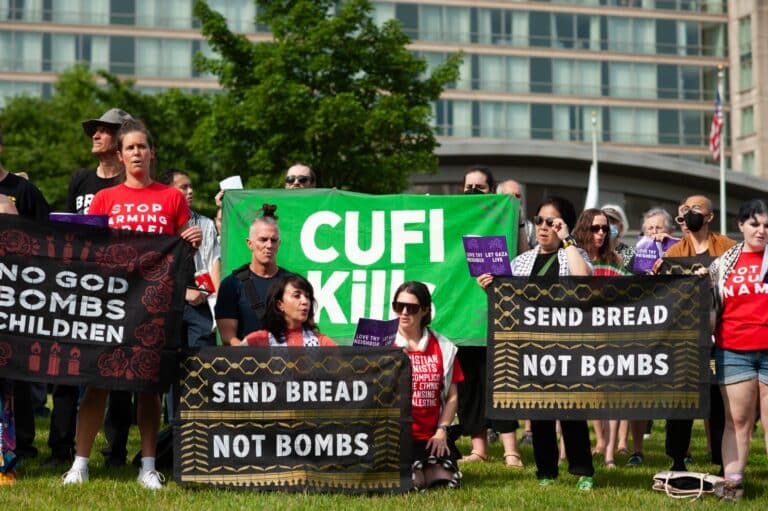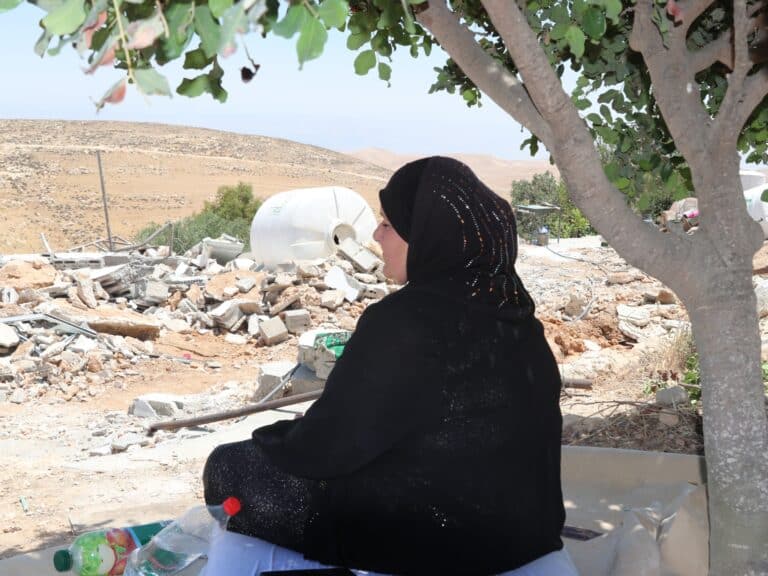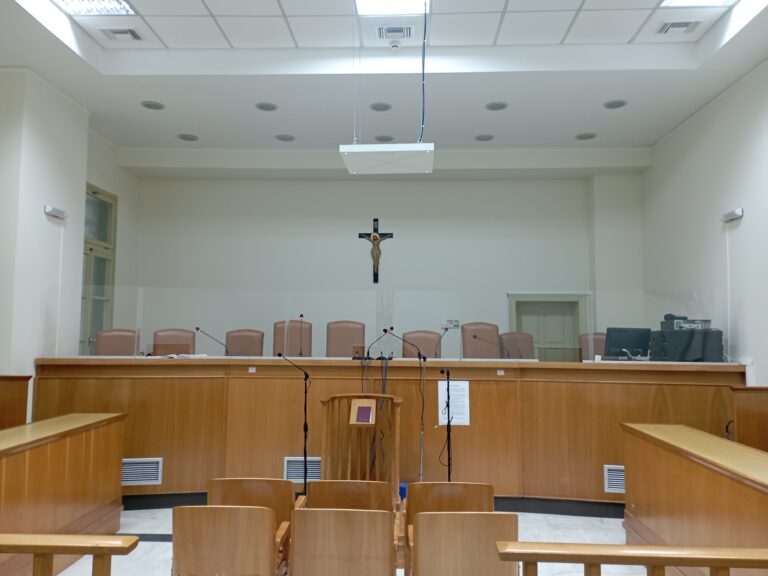by Adriana Cabrera Velásquez
 Israeli Border Police argued with my teammate about walking on the “settler path” as sound grenades and tear gas exploded at a nearby checkpoint. According to the Border Police, we CPTers could walk on the smoothly-paved safer path traveled by Israeli settlers, but the Palestinian kindergarten children with us could not. They would have to walk on the adjacent path filled with garbage, broken rubble and sharp rocks.
Israeli Border Police argued with my teammate about walking on the “settler path” as sound grenades and tear gas exploded at a nearby checkpoint. According to the Border Police, we CPTers could walk on the smoothly-paved safer path traveled by Israeli settlers, but the Palestinian kindergarten children with us could not. They would have to walk on the adjacent path filled with garbage, broken rubble and sharp rocks.
One officer uttered Hebrew words through his radio. My teammate engaged the other. The children looked frightened. I pulled out a notebook and pen, got down on my knees, and started drawing.
“Pintemos un payaso,” I told them, knowing the children would not understand my Spanish. First the head, then the nose, eyes, ears, hair. I drew a clown.
One of the girls smiled timidly and told me something in Arabic.
“No te entiendo, pero pintemos otro payaso.” “I don’t understand, but let’s draw another clown.” I started again: head, nose, eyes, ears, hair. My drawings amused the girls. They giggled. The boys pretended not to be interested, but peeked discreetly so they could see my art.
A flock of sheep paraded nearby. “Pintemos esas ovejas!” I said, and started drawing the sheep.
The children laughed and warmed up to me, all talking at once. “I don’t understand a thing, pero pintemos un gallo,” I said, and tried to draw a rooster. I was kneeling on the pavement with my back to the officers and having fun with the children.
“Your passport, please,” said one officer to divert my attention. I pulled my passport out and gave it to him, still facing the children.
“Where is the number?” he asked.
“What number? Why do you need my number?” I said with curiosity.
“I do not need your phone number, I need your passport number,” he said. “I need all the information.”
“You have all the information. You have my passport. I will not tell you where to find the number because you already have it.”
One of the children pulled me down and pointed at the CPT logo on my vest.
“Ah! Pintemos la paloma!” I said. “Let’s draw the dove!” I turned to a clean page and traced the CPT dove. Another girl set her finger over the dove again. “Te pinto una tambien.” I traced a sister CPT dove perched on the same branch.
“Tell me which of these is your passport number!” the officer insisted.
“I will tell you when you tell me why you need it.” I replied. I knew this could not continue much longer or things would soon escalate.
The officer asked my teammate for his ID. I gave the notebook and pen to one of the girls so she could draw something else. Then I stood up and faced the officers. They exchanged some words with my teammate, looked at me in dismay and returned both of our IDs, still refusing to let the children walk on the safer pavement.
“Khalas!” said my teammate in Arabic. “Enough! Let’s go the other way.”
And so it is in Hebron/al-Khalil – the sophisticated Israeli authorities ensure that small children learn that their soft Palestinian feet must walk only on the broken path.
Adriana Cabrera, from Boyacá, Colombia, joined CPT’s Administrative Team in 2011 as Personnel Coordinator. She served with the Palestine team from mid-February to mid-March 2015.



